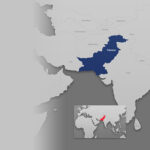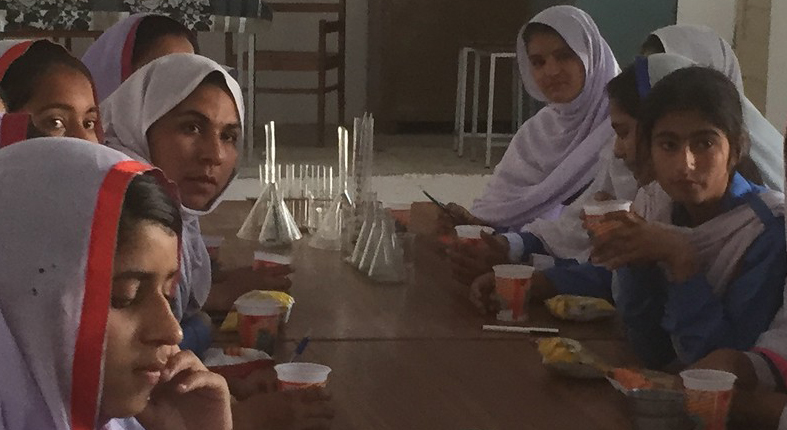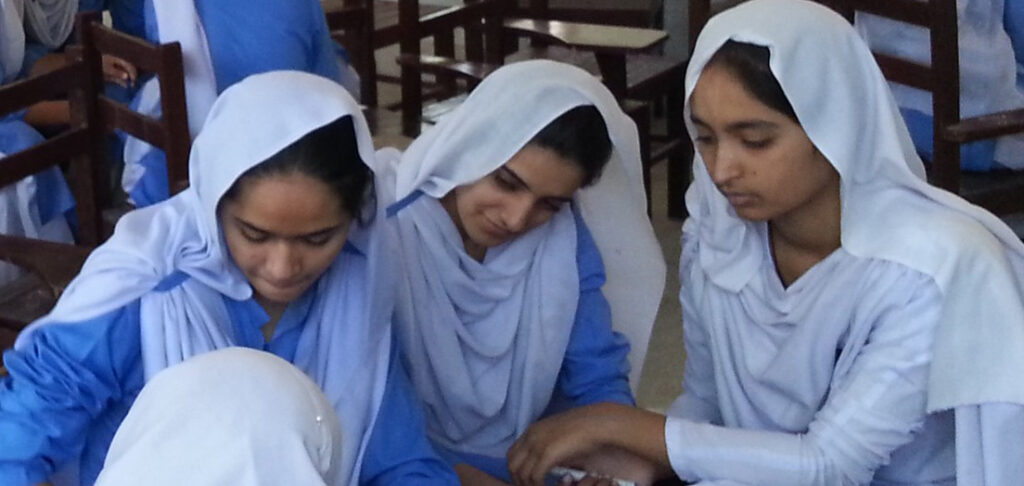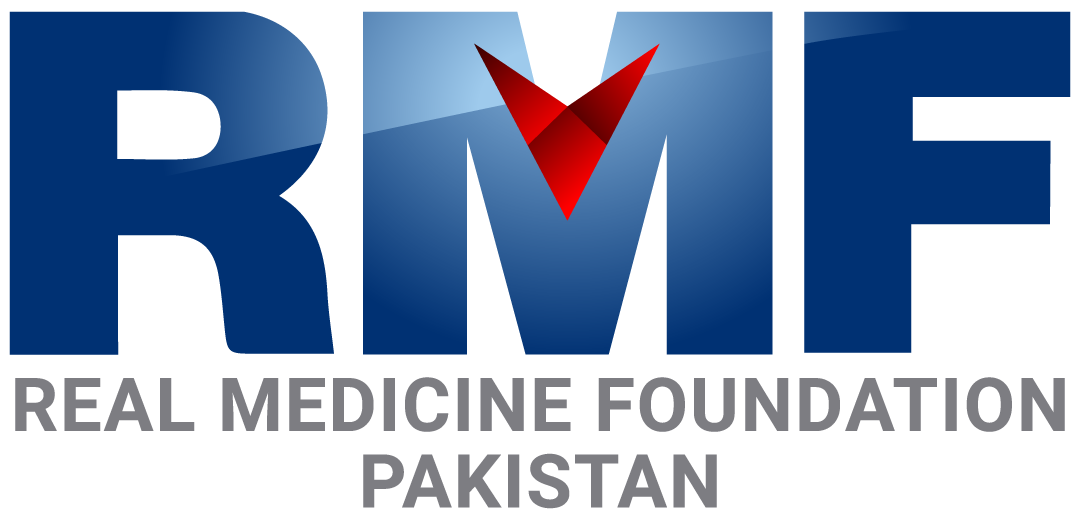- Home
- About Us
- Our Work
- Initiatives
- Disaster Relief
- Hospital and Clinic Projects & Support
- Education & School Support
- Refugee Support
- Healthcare Education & Outreach
- Healthcare Capacity Building & Health Systems Strengthening
- Mobile Clinic Outreach
- Economic Stability & Livelihood
- Community Support
- Psychological Trauma Support
- Health Research
- News & Updates
- Get Involved

Questions and Answers
PAKISTAN GIRLS' PUBERTY BOOK
NOVEMBER 15, 2016 - PAKISTAN

All information contained in this blog originates from the 2016 report, “Formative Menstrual Hygiene Management Research: Adolescent Girls in Baluchistan,” by Dr. Zubia Mumtaz, Dr. Marni Sommer, and Afshan Bhatti (RMF Pakistan’s Research Project Manager) and from our interview with RMF Pakistan’s Country Director, Dr. Rubina Mumtaz.
If I could sum up Pakistani girls’ pubertal experience in one word, I would choose “confusion.” This may be true of all countries and cultures, but in Pakistan, where menstruation is only spoken of in hushed tones and fragments, the confusion is pervasive and severe. You may have read our previous blog, about the often traumatic experience that is a Pakistani girl’s first period. The girls often do not know what a period is before experiencing it:
When I had my first period, I did not know anything about it. I was at home at that time. I was getting ready for school one morning when I felt my shalwar (pants) was wet. I was surprised because I had not sat in water or anything. I went to the washroom and checked my shalwar. I got very scared and I thought that I had developed cancer. (Lasbela, Girl in 9th grade)
In addition to lack of knowledge regarding the physiology of menstruation, there is a great deal of misinformation taught to young girls and perpetuated by grown women and even teachers. Much of this misinformation entails restricting girls’ ability to function normally in the areas of physical activity, religion, hygiene, and diet.

Physical Restrictions
While menstruating, girls’ physical activity is severely limited. They are not allowed to play, ride bikes, dance, etc.
Why can we not play during menstruation? It is a natural process. Don’t sportswomen play during this time of month? (Kuchlaak, Girl in 9th grade)
Why can’t we lift weights during our periods? What happens if we do? (Kuchlaak, Girl in 8th grade)

Religious Restrictions
Many girls have been told that they must not pray or fast during menstruation because they are impure. Additionally, sitting on the prayer mat and reading or reciting the Quran is not allowed.

Hygiene Restrictions
Girls are not allowed to bathe while menstruating and are instructed not to wash their private parts with water even after urination/defecation. Subsequently, they may smell and get infections. Girls are told that using water leads to infertility.
During periods we are not allowed to take a bath for 7 days. What is the reason behind that? (Kuchlak, Girl 8th grade)
Should we clean ourselves with water during this time (Kucklak, grade 9th)?

Dietary Restrictions
Some foods must be avoided during menstruation as well, though the specifics seem to depend on the family. For example, in some families ‘hot’ and ‘cold’ foods, according to traditional humoral understanding, cannot be consumed.
My mother doesn’t allow me to eat certain things during periods e.g., onions, meat, buttermilk, yoghurt etc. What is the reason behind this? (Lasbela, Girl in 7th grade)
Is it true that our stomach enlarges if we use water to wash ourselves and eat beef during periods? (Kuchlaak, Girl in 9th grade)
Can we take any medicine to relief the pain? Some people say that we shouldn’t take medicines during periods. Why is that? (Kuchlaak, Girl in 10th grade)

Pakistan Girls’ Puberty Book
Real Medicine Foundation partnered with Professor Dr. Marni Sommer of Columbia University and gained funding from Grow N Know Inc (G&K) to launch a research study to “explore the knowledge gap of how the onset of menstruation and puberty influences the Pakistani girls’ school-going experiences, including school retention, and to develop the Pakistan girls’ puberty book…with the aim to promote young women’s health and education during pubertal transitions.”
All of the above quotes from students came from the “Formative Menstrual Hygiene Management Research: Adolescent Girls in Baluchistan” report. This report, along with our findings in Punjab, have informed the creation of the Pakistan Girls’ Puberty Book that will aid community members and teachers in conveying accurate medical and social information to the girls. This book (to be published in December 2016) is culturally sensitive and contains information the girls have requested and suggested. It will address the restrictions listed above, explain the natural physiological process of menstruation, and provide information on hygienic menstrual management and practices.
As you can see, Pakistani girls are asking questions and they want honest, accurate answers. RMF is working to liberate the potential of Pakistani girls through empowerment and education. The puberty book will give the girls and women of Pakistan the knowledge they need to manage their own menstrual health without trauma and confusion, ultimately allowing them to maintain better health and continue their normal routines and education.

REAL MEDICINE FOUNDATION PAKISTAN
Initiatives
- Disaster Relief
- Hospital & Clinic Projects Support
- Education & School Support
- Refugee Support
- Malnutrition Eradication
- mHealth Programs
- Healthcare Education & Outreach
- Healthcare Capacity Building & Systems
- Economic Stability & Livelihood
- Flood Victims Healthcare Outreach
- Health Research
- HIV/AIDS Prevention & Treatment
- Medical Support
- Mobile Clinics
- Psychological Support
Designed & Developed by Socialoctors
